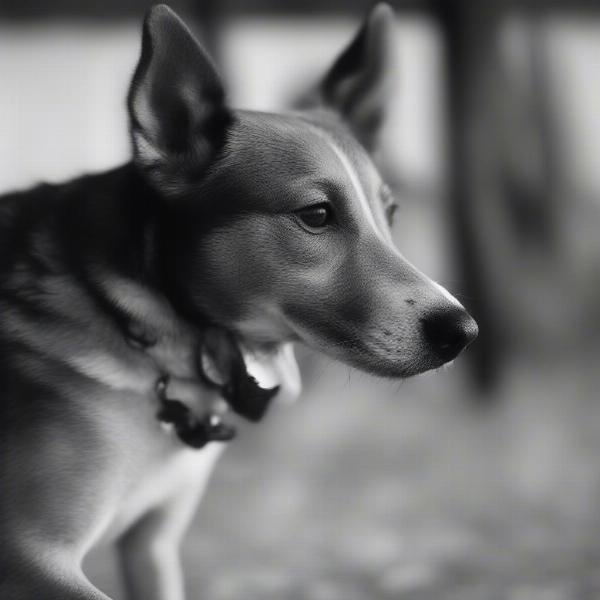Understanding your dog baby’s growth is crucial for their overall well-being. From the moment you bring your furry bundle of joy home, monitoring their development and ensuring they receive the proper nutrition, exercise, and socialization is essential. This comprehensive guide will equip you with the knowledge you need to navigate each stage of your puppy’s growth, from tiny newborn to boisterous adolescent and beyond.
Key Stages of Dog Baby Growth
Puppy development is rapid and fascinating. Understanding these key phases can help you anticipate your pup’s needs and provide the best possible care.
Neonatal Stage (0-2 Weeks)
This period is all about survival. Puppies are entirely dependent on their mother for warmth, nourishment, and elimination. Their eyes and ears are closed, and their movements are limited.
Transitional Stage (2-4 Weeks)
The world begins to open up! Eyes and ears start to function, and puppies begin to explore their surroundings. This is when early socialization with their littermates is critical.
Socialization Period (4-12 Weeks)
This phase is crucial for shaping your puppy’s personality. Introduce them to various sights, sounds, smells, people, and other animals in a positive and controlled environment. This helps them develop into well-adjusted adults. diapers-for-dogs-with-no-tail
Juvenile Period (3-6 Months)
Puppies become more independent and playful during this stage. Teething begins, and they may start to test boundaries. Consistent training and socialization are essential.
Adolescence (6-18 Months)
Just like human teenagers, adolescent dogs can be challenging! They may push boundaries, become easily distracted, and experience hormonal changes. Patience and continued training are key.
 Adolescent Dog Behavior
Adolescent Dog Behavior
How to Monitor Dog Baby Growth
Regularly tracking your puppy’s growth is important. Keep a record of their weight and height, and compare it to breed-specific growth charts. Consult your veterinarian if you notice any significant deviations or concerns.
What Influences Puppy Growth?
Several factors influence a puppy’s growth trajectory, including breed, genetics, nutrition, and overall health.
- Breed: Larger breeds tend to grow slower and reach maturity later than smaller breeds.
- Genetics: A puppy’s genetic predisposition plays a significant role in their size and growth rate.
- Nutrition: Providing a balanced and complete diet specifically formulated for puppies is essential for healthy growth. if-a-dog-kills-a-cat-will-it-kill-again
- Health: Illnesses or medical conditions can significantly impact a puppy’s growth.
Nutrition for a Growing Dog Baby
Feeding your dog baby a high-quality diet is paramount for their development. Choose a puppy food that meets their specific nutritional needs, and avoid overfeeding or underfeeding.
How much should I feed my puppy?
Follow the feeding guidelines on your chosen puppy food, and adjust the portions based on your puppy’s individual needs and activity levels. Consult your vet for personalized recommendations. dog-eating-oussy
Conclusion
Understanding and supporting your dog baby’s growth is a rewarding journey. By providing the right care, nutrition, and environment, you can help your furry friend thrive and develop into a happy and healthy adult.
FAQ
- How often should I weigh my puppy? Weekly weigh-ins are recommended during the first few months.
- When should I switch my puppy to adult food? Consult your veterinarian, but generally, the transition occurs around 1 year of age.
- What are some signs of abnormal puppy growth? Significant deviations from breed-specific growth charts, lethargy, or digestive issues. schnauzer-doesnt-get-along-with-other-dogs
- Is it normal for puppies to sleep a lot? Yes, puppies need a lot of sleep for proper growth and development.
- When should I start socializing my puppy? As early as possible, ideally between 4 and 12 weeks of age. dog-toys-for-blind-dogs
ILM Dog is your trusted resource for expert advice on dog care and breeds. We offer a wealth of information on dog health, training, nutrition, grooming, and much more. Whether you’re a first-time puppy parent or a seasoned dog owner, ILM Dog provides the knowledge and support you need to provide the best possible care for your canine companion. Contact us today at [email protected] or +44 20-3965-8624 to learn more about our services.